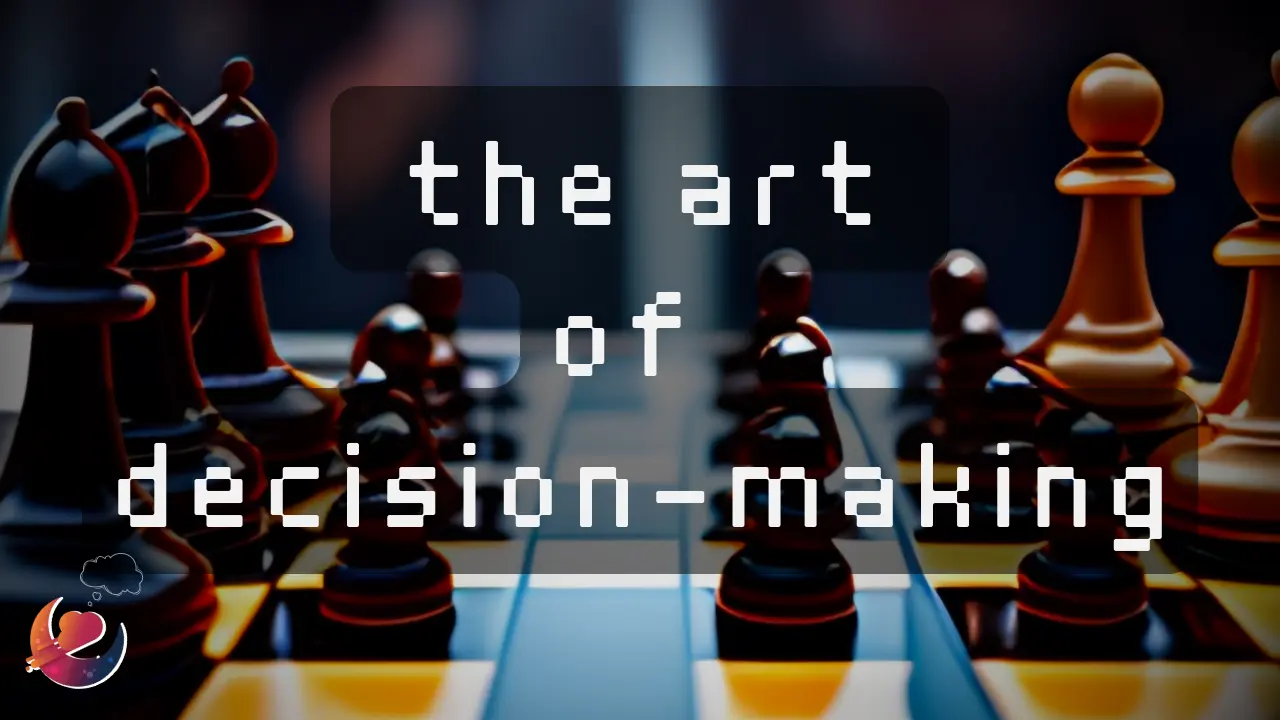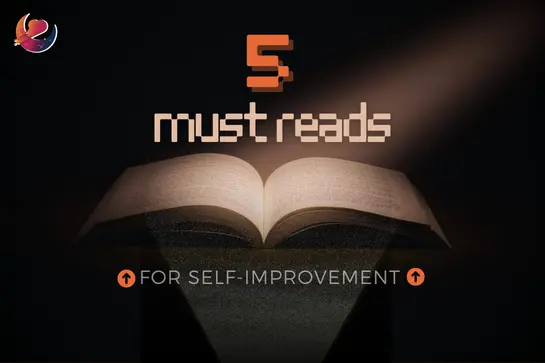By Prathamesh Kapse | 6th July, 2023
Learn effective techniques for making better decisions in your life. Discover practical tips and a 3-5-7 rule to handle decisions of varying difficulty levels. Improve your decision-making skills and enhance your overall well-being.

Making decisions about stuff has got to be one of the most important aspects of our lives. One small decision can result in exponentially greater changes in our lives as well as our well-being, both mental and physical. Doing something so important in every aspect has got to be stressful and stress means panic means bad decision-making instances.
But, there is always a good way around everything that’s bad and that’s why you’re reading this article- to get better at making decisions that can shape your life the way you want.
What Is Decision-Making?
There is always so much ambiguity around what we consider to be decision-making skills that people have. We often think that someone is great at making decisions because they’ve made a lot of good decisions in their lives.
But is making a decision really a skill? I mean, if something can be influenced so easily by your emotions and feelings, can we consider it to be a skill? We know being able to play the guitar very well is a skill. Because if you wake me up at midnight and ask me to play the guitar, I can play it as I would play it anytime during the day when I’m totally aware.
I would, personally, like to view decision-making as an ability of the present moment. We are making decisions throughout the day. When I’m going to wake up is my decision, when I’m going to school is my decision, when I’m going to the gym is my decision. We make these decisions in the present moment. So, we can call it an ability. Making a decision is an ability. An ability can be influenced by external and internal aspects like emotions, feelings, moods, peer pressure, etc.

What Types Of Decisions Do We Have To Make?
As mentioned, we make a lot of decisions. Throughout the day, week, month, and throughout our lifetimes. Some have effects lasting no longer than a day, while some have effects that can change everything you know.
To get better at making these decisions at different levels of importance and difficulty, I use the 3-5-7 rule. In order of increasing difficulty, follow three-five-seven steps for easy-medium-tough level decisions respectively. I’ll elaborate.
Level 1: Easy.

These are the easiest decisions that we have to make. For instance, what I should eat for breakfast, what I should do as a pastime, what subject I should study right now, and when should I go to the gym, school, or park. These decisions have effects that last only a while. After that, everything is back to normal and you have to repeat these decisions frequently. Some of them might have greater effects down the line but most of them don’t.
So, how can we get better at making these decisions? Whenever you are faced with a situation like this, make sure to ask yourself these questions.
1. The last time I decided to do (task), what happened? Did it work out as I wanted it to?
2. Is doing (task) really necessary? What would happen if I decide not to?
3. Does this, in any way, benefit me?
Asking yourself these questions will make you aware of whether you need to or whether you want to do the particular task. This specific technique also proves to be very good for time management. It saves you time on the tasks you don’t need to perform and gives you more time for the important tasks.
Level 2: Medium.

The decisions that we have to make can have long-lasting effects ( I’m repeating information😭). This level includes the decisions that can have effects that last long but not long enough. Maybe they change you and your schedule for a certain duration of time but they would probably bring you back to normal once you’re done.
To get better:
1. Get a decision-making diary or just a normal diary. (Don’t spend a lot of money on fancy stationery)
2. Write down the decision you have to make. For example, Which gym should I get a membership in?
3. Write down “What Do I Want?”, then create two sections, name them ‘Emotionally’, and ‘Rationally’. Write down your thoughts on both of them. Find a line between both of them so you don’t completely compromise your emotional needs for your rational needs or vice-versa. Adjust between both of them so you find the silver lining and you’re satisfactory.
4. Now, write down “What options do I have?”. Write down all the feasible options and highlight their pros and cons. That way, you can compare easily and in a much better way.
5. That’s it! Now compare what you have with what you want and what you need. The one that fits best is the one to go for. Find the least compromising situation but the best rewarding one.
Level 3: Tough.

These are clearly very tough decisions to make. We are often influenced by emotions. There are few times when we think very rationally. It is the emotion that decides what’s good, bad, or indifferent. If I smoke and I pretend that it makes me feel calm, it’s this emotion that makes me think it’s not bad for me after all even though rationally I know it is. In a somewhat similar way, it is the emotion that makes the decisions for us and when that happens, sometimes we are in huge trouble or we set ourselves up for huge trouble. So, how can we make decisions without the influence of any emotions or feelings?
First of all, emotions and feelings are important. You shouldn’t always make rational decisions. Sometimes, the decisions you take emotionally can prove to be much better than rational decisions. This is when people tell you to listen to your heart.
What system can we use here to make better decisions?
1. Gain a clear view of what decision you have to make. It’s important to understand completely the nature of the decision you’re going to have to make. If you don’t understand the complete depth of the decision, you might misinterpret it and take steps that aren’t any good for you. Try to understand what the decision is about and what it affects in the short and the long run.
2. Gather all the information you can about the decision and learn from people who’ve had to make similar decisions. It’s okay to ask people for help. Nobody who’s been through the same process is going to judge you. (it doesn’t really matter even if they do, you get the information you need!)
3. This brings us to our next step which is analyzing the effects. Every action has a reaction (Not using the words equal and opposite here). It’s so much more important to look at the decision from different perspectives and try to find all the effects it can have on you and your surroundings. Analyze all the potential outcomes.
4. Learn from past experiences. Try to recall if you had to make a similar decision in the past. Maybe you did it the wrong way but realized it later. This might be the time to do it in the right way. Experience really matters and as said earlier, if you don’t have experience, feel free to ask others who do.
5. Trust your intuition and gut feelings. It’s important to analyze everything and nothing is going to change that. But you should also trust your values, principles, intuition, and gut. It’s almost equally if not exactly equally important. Try to see what decisions align with your career-oriented goals and eventually, end goals in life.
6. Make sure you don’t regret your decision no matter what it comes down to. Tell yourself continuously that the decision you made was only after putting in the required amount of thought and effort. You did not make the wrong decision, it was the best decision you could make at the time. Make yourself believe this. Drowning in regret after you think you made the wrong decision will only make you take worse decisions down the line.
7. With all that on our plate, it’s important to not hurry. Take your time because these are very important ones to get right. One step wrong could affect entire lifetimes (it’s not that serious, everything unfolds when we’re in the moment but we just don’t often realize their importance at the moment). Set a deadline, but don’t hurry.
Decisions can be categorized but results can’t be. The easy-level decisions might have tough-level outcomes. But, it’s important to understand that after you take the decision, you give up control. So there’s no need nor is there a point in worrying about what the outcome is going to be. So sit back, chill, relax. You’ve followed these steps and you’ve made your decision. Worrying about the outcome is not something you have to do. You can freely make changes to the above list of steps/ rules as per your requirements. After all, everyone is unique and has unique decisions to make. So, it’s not really a hard and fast rule that you have to follow these rules.
Thumbnail Design by Mudit Jha






Forgot password?
Close message
Subscribe to this blog post's comments through...
Subscribe via email
SubscribeComments
Post a new comment
Comment as a Guest, or login:
Connected as (Logout)
Not displayed publicly.
Comments by IntenseDebate
Reply as a Guest, or login:
Connected as (Logout)
Not displayed publicly.